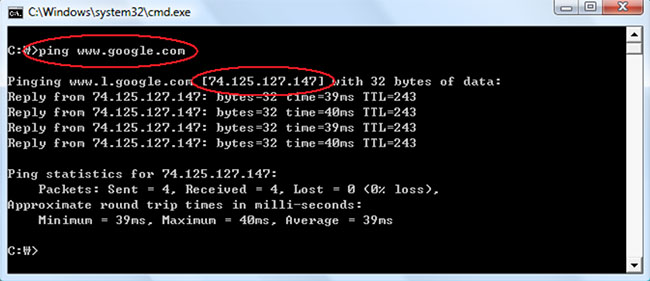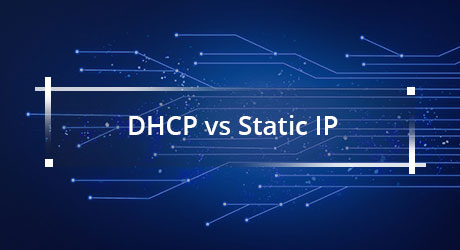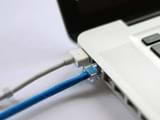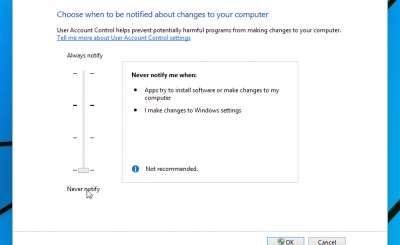Today, most network devices such as routers or network switches use the IP protocol as the standard to communicate over the network. In the IP protocol, each device on the network has a unique identifier called an IP address. The easiest method to achieve this is to configure a fixed or static IP address.
Because there are restrictions on static IPs, some administrators look to use dynamic IPs instead. DHCP (Dynamic Host Configuration Protocol) is a protocol for dynamically assigning IP addresses to devices connected to a network. So DHCP vs Static IP, what’s the difference? And Quantrimang.com Find the answer in the following article!
Static IP addresses are addresses that are permanently assigned by ISPs to network devices and do not change even when the device is rebooted. Static IP usually comes in two versions: IPv4 and IPv6. Static IPs are usually assigned to servers that host websites and provide email, VPN, and FTP services. During the process of setting a static IP, each device on the network has its own unique address, and you will have to configure the static IP manually. When new devices are connected to the network, you will have to select the “manual” configuration option and enter the IP address, subnet mask, default gateway, and DNS server.
A good example of using a static IP is a web server. From Windows on your computer, go to START > RUN > type “cmd” > OK. Then type “ping www.google.com” on the Command Prompt window, the interface will appear as you see below. Four-byte number 74.125.127.147 is the current IP of www.google.com. If it is a static IP, you can connect to Google at any time using this static IP in your web browser if you want to access Google.

What is DHCP?
The opposite of a static IP is a dynamic IP address. The topic of static and dynamic IP is hotly debated among many IT technicians. Dynamic IP addresses are constantly changing. To generate a dynamic IP address, the network must have a DHCP server configured and working. The DHCP server assigns a blank IP address to all devices connected to the network.
DHCP is a way of dynamically and automatically assigning IP addresses to network devices on a physical network. It provides an automated way to distribute and update IP addresses and other configuration information over the network. To know how DHCP works, read the article: What is DHCP or Dynamic Host Configuration Protocol?
DHCP vs Static IP: Which is Better?

Proper IP address configuration is essential to establish communication between devices on the network. So, between DHCP and static IP, which is better? We will discuss this below.
Static IP allows network devices to always use the same IP address, the network administrator must keep track of each statically assigned device to avoid reusing that IP address. Since static IP requires manual configuration, it can create network problems if you use it without a good understanding of TCP/IP.
Meanwhile, DHCP is a protocol that helps automate the task of assigning IP addresses. DHCP is beneficial for network administrators because it eliminates the repetitive task of assigning multiple IP addresses to each device on the network. Assigning IP to 1 device can take only 1 minute, but if you have to configure hundreds of devices, it will take a lot of time. Wireless access points also use DHCP so that administrators don’t have to manually configure their devices.
For wireless access points, PoE network switches, which support user-defined dynamic binding, are commonly used to allocate IP addresses to each connected device. Besides, what makes DHCP so attractive is that it is cheaper than static IPs with less maintenance required. You can easily find their pros and cons from the following table.
| IP address | Advantages | Defect |
|---|---|---|
| DHCP | DHCP does not need any manual configuration to connect to local devices or access the web. | With DHCP, there is a risk that someone could introduce an unauthorized DHCP server and hack into the network with illegitimate purposes or lead to random access to the network without explicit permission. |
| static IP | The address does not change over time unless it is changed manually – good for web servers and mail servers. | Static IPs are more expensive than dynamic IP addresses, as ISPs often charge extra for static IPs. Additionally, it requires additional security and manual configuration, which adds complexity when multiple devices are connected to each other. |
Conclude
After comparing DHCP and static IP, it is certain that DHCP is the more popular choice for most users as they are easier to implement and cheaper. Having a static IP and guessing which IP addresses are available is really annoying and time consuming, especially for those unfamiliar with the process.
However, a static IP is still necessary and useful if you host a website at home, have a file server on your network, use a networked printer, or if you want to access your computer remotely. Since the static IP never changes, other devices can always know exactly how to contact the device using the static IP.
Source link: DHCP vs Static IP which is better?
– https://techtipsnreview.com/





